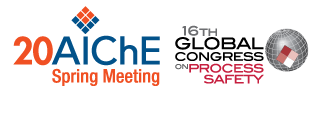

Reactivity tests for identification and understanding of reactive chemical hazards are conducted using different experimental tools of calorimetry. These attempt to predict chemical properties and unsafe process conditions. Moreover, there is often an under prediction of reactivity-related properties (e.g. overpressure), and experimental techniques face significant challenges for its extensive duration and high costs. Quantitative Structure-Property Relationships (QSPR) on the other hand are defined as mathematical correlations to predict chemical properties from a series of descriptors inherent from the substances.
In this presentation I propose the application of a QSPR method to Metal-Organic Frameworks (MOFs). These emerging type of complex porous metal compounds with less than 20 years of discovery with potential applications for energy, (gas storage), global warming mitigation, catalysis. The method uses data analysis and machine learning techniques to propose a model to determine the thermal stability of MOFs and determine the potential hazards with this new technology poses. A systemic approach is proposed to develop prediction tools based on QSPR. This, using laboratory test data and molecular modeling techniques. Thus, by calculating molecular descriptors for a variety of MOFs using molecular modeling tools, decomposition properties obtained from thermogravimetric analysis are selected as target properties for this QSPR model. This will be followed by defining the limits of applicability and the development of a tool/software for the application of the model.
Presenter(s)
Language
Pricing
Individuals
| AIChE Member Credits | 0.5 |
| AIChE Pro Members | $19.00 |
| Employees of CCPS Member Companies | Free |
| AIChE Graduate Student Members | Free |
| AIChE Undergraduate Student Members | Free |
| AIChE Explorer Members | $29.00 |
| Non-Members | $29.00 |
